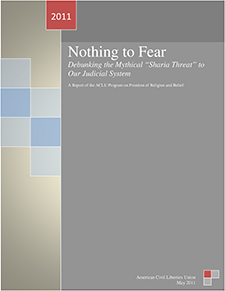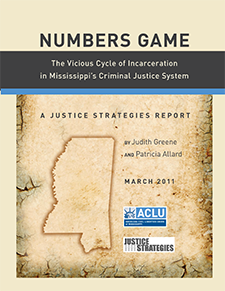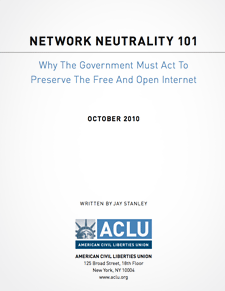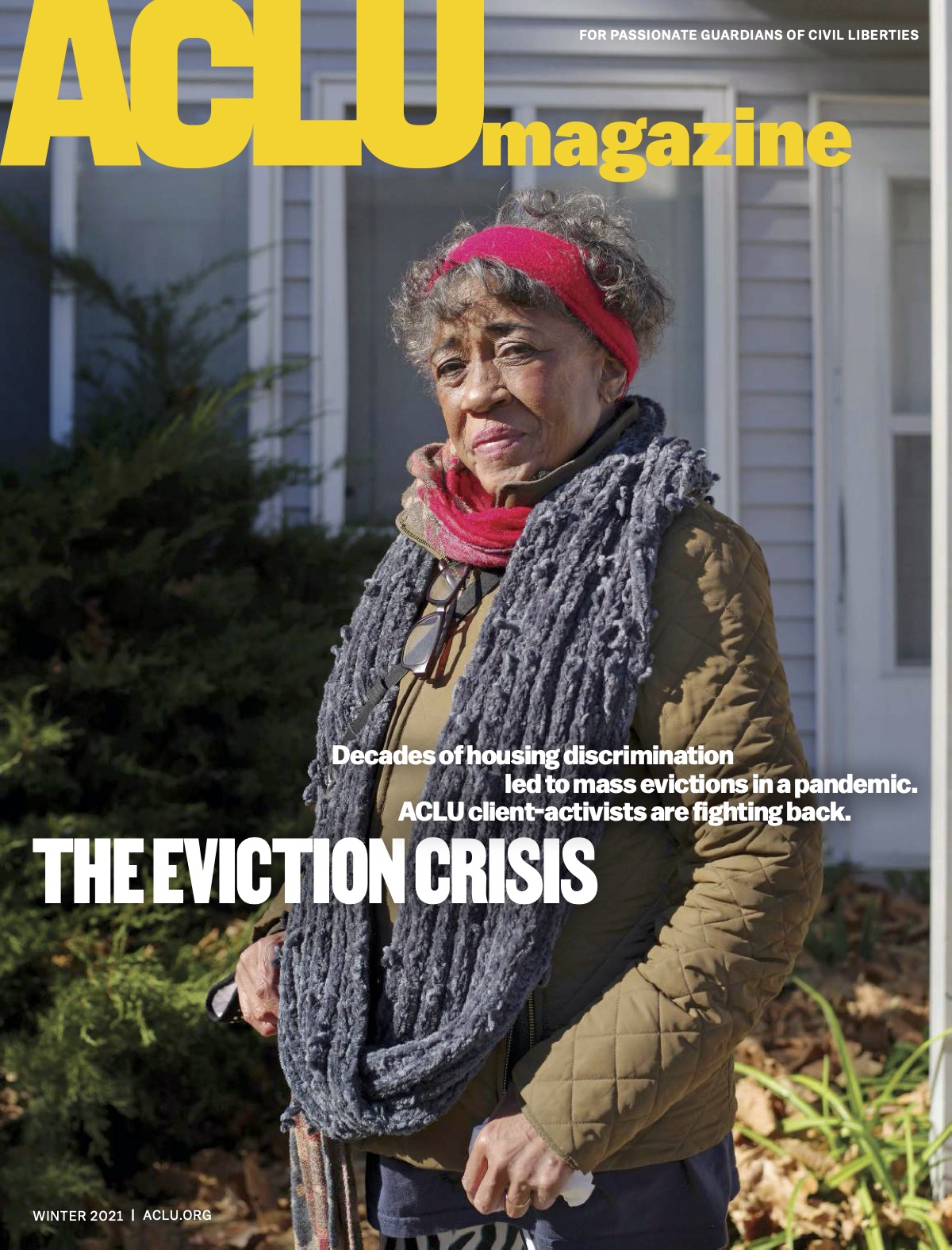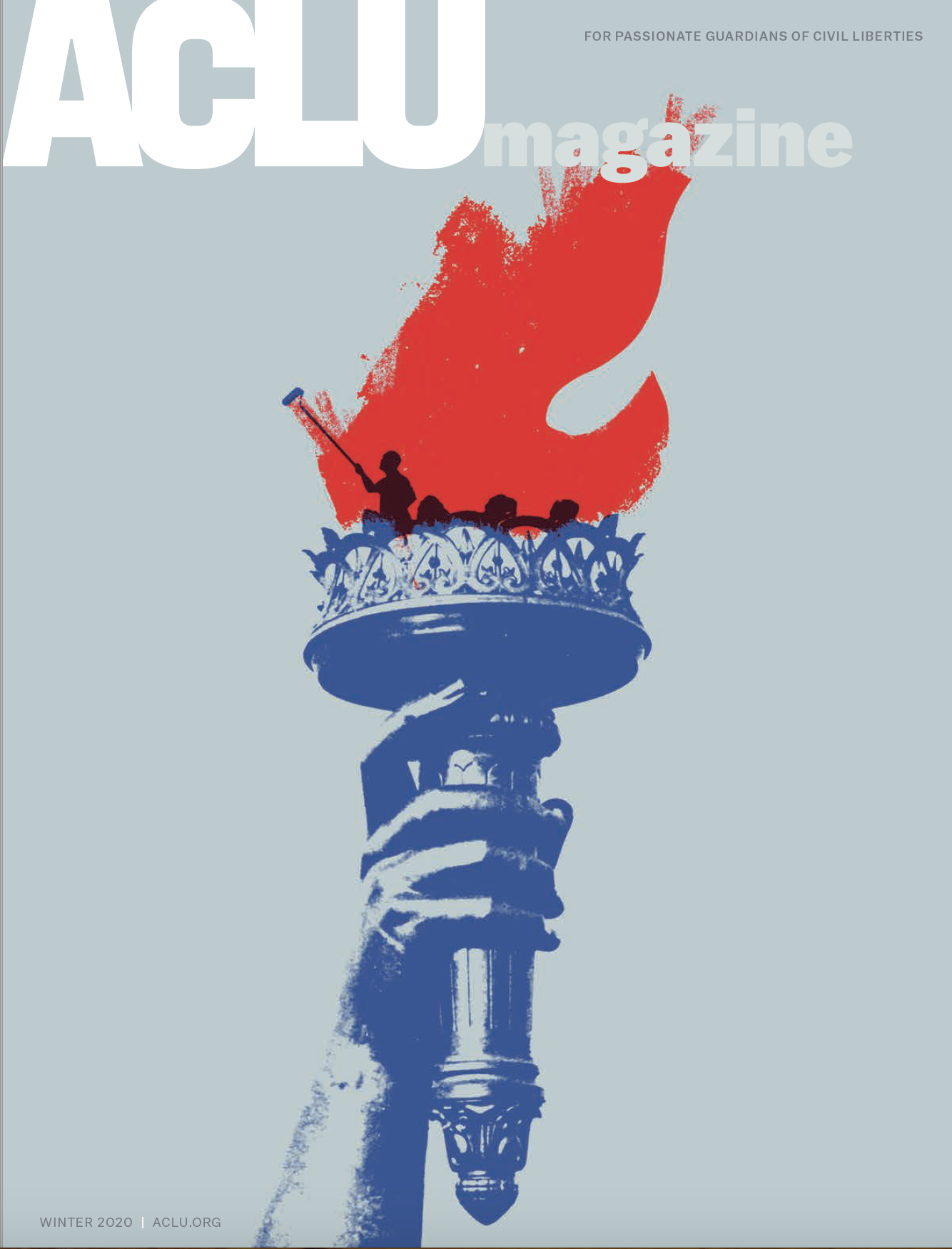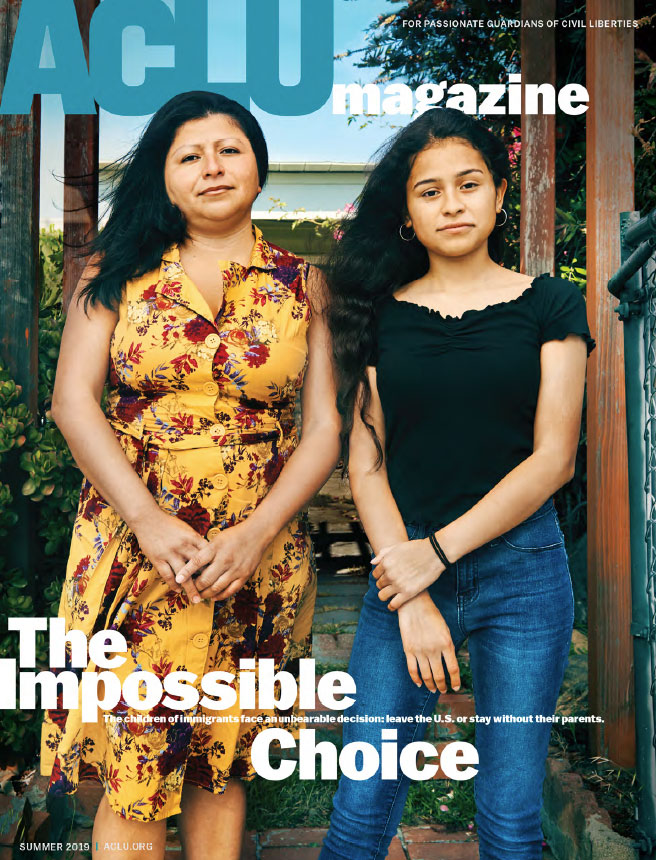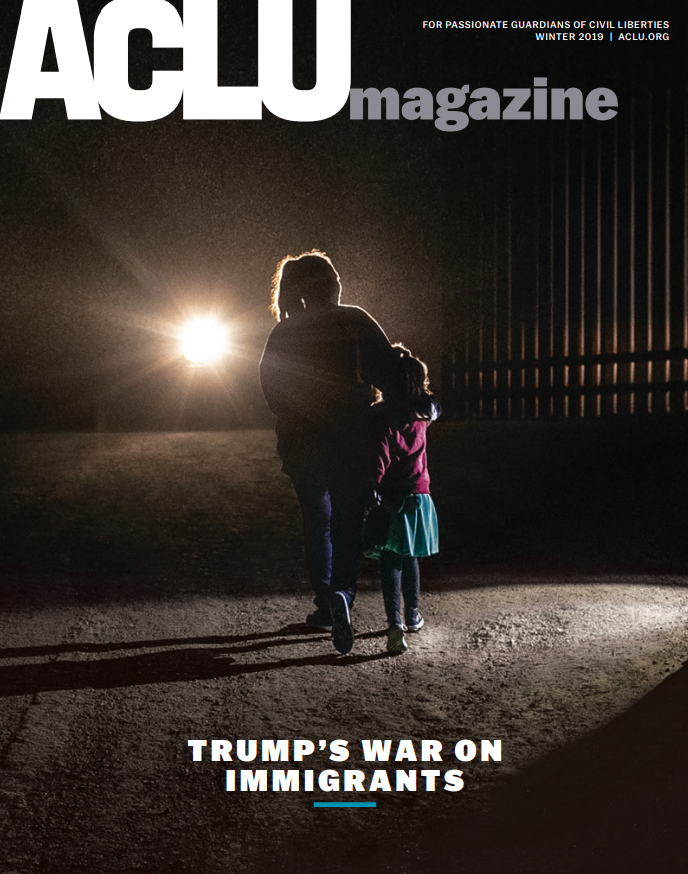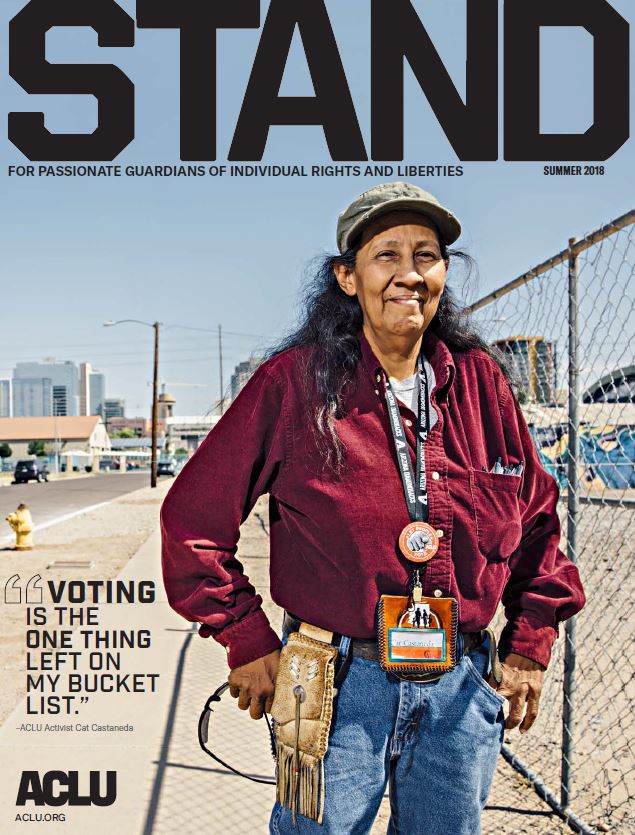Research & Publications
Access in-depth resources and analysis published by the ACLU regarding our most pressing civil liberties issues.
All Publications
Search will open in a new tab using DuckDuckGo
Report - A Call to Courage: Reclaiming Our Liberties Ten Years After 9/11
An ACLU report release to coincide with the 10th anniversary of 9/11 warns that a decade after the attacks, the United States is at risk of enshrining a permanent state of emergency in which core values must be subordinated to ever-expanding claims of national security.
More on Civil Liberties After 9/11
The report, entitled, "A Call to Courage: Reclaiming Our Liberties Ten Years after 9/11," explores how sacrificing America's values – including justice, individual liberty, and the rule of law – ultimately undermines safety.
Read the full report
Everywhere And Forever War
The report begins with an examination of the contention that the U.S. is engaged in a "war on terror" that takes place everywhere and will last forever, and that therefore counterterrorism measures cannot be balanced against any other considerations such as maintaining civil liberties. The report states that the United States has become an international legal outlier in invoking the right to use lethal force and indefinite military detention outside battle zones, and that these policies have hampered the international fight against terrorism by straining relations with allies and handing a propaganda tool to enemies.
A Cancer On Our Legal System
Taking on the legacy of the Bush administration's torture policy, the report warns that the lack of accountability leaves the door open to future abuses. "Our nation's official record of this era will show numerous honors to those who authorized torture – including a Presidential Medal of Freedom – and no recognition for those, like the Abu Ghraib whistleblower, who rejected and exposed it," it notes.
Fracturing Our “More Perfect Union”
The report details how profiling based on race and religion has become commonplace nationwide, with the results of such approaches showing just how wrong and ineffective those practices are. "Targeting the American Muslim community for counterterrorism investigation is counterproductive because it diverts attention and resources that ought to be spent on individuals and violent groups that actually pose a threat," the report says. "By allowing – and in some cases actively encouraging – the fear of terrorism to divide Americans by religion, race, and belief, our political leaders are fracturing this nation’s greatest strength: its ability to integrate diverse strands into a unified whole on the basis of shared, pluralistic, democratic values."
A Massive and Unchecked Surveillance Society
Concluding with the massive expansion of surveillance since 9/11, the report delves into the many ways the government now spies on Americans without any suspicion of wrongdoing, from warrantless wiretapping to cell phone location tracking – but with little to show for it. "The reality is that as governmental surveillance has become easier and less constrained, security agencies are flooded with junk data, generating thousands of false leads that distract from real threats," the report says.
“A Call to Courage” points out that many controversial policies have been shrouded in secrecy under the rubric of national security, preventing oversight and examination by the public. "We look to our leaders and our institutions, our courts and our Congress, to guide us towards a better way, and it is now up to the American people to demand that our leaders respond to national security challenges with our values, our unity – and yes, our courage – intact."
Nothing to Fear: Debunking the Mythical "Sharia Threat" to Our Judicial System
Across the country, state legislators are considering proposed laws that would limit the ability of courts to adjudicate lawsuits brought by Muslims. Proponents of these measures argue that they are necessary because so-called “Sharia law” is somehow taking over our courts. These claims are, simply put, wrong. They are based both on misinformation and a misunderstanding of how our judicial system works.
There is no evidence that Islamic law is encroaching on our courts. On the contrary, the court cases cited by anti-Muslim groups as purportedly illustrative of this problem actually show the opposite: Courts treat lawsuits that are brought by Muslims or that address the Islamic faith in the same way that they deal with similar claims brought by people of other faiths or that involve no religion at all. These cases also show that sufficient protections already exist in our legal system to ensure that courts do not become impermissibly entangled with religion or improperly consider, defer to, or apply religious law where it would violate basic principles of U.S. or state public policy.
This report examines specific court cases that have been repeatedly cited by anti-Muslim advocates as evidence of the so-called “Sharia threat.” Breaking the cases down into three categories — cases involving religious freedom claims; contracts, arbitrations, and other agreements; and public policy issues — the report provides details of each case and puts them into proper context. It does not take a lawyer or expert to see that the cases are routine legal matters and do not stand for the principles that proponents of anti-Sharia measures contend. Rather, these cases are red herrings, meant to distract from the true aim of the recently proposed Sharia bans – to denigrate an entire faith system and to deny its followers the same access to the judicial system enjoyed by citizens of other creeds.
Numbers Game: The Vicious Cycle of Incarceration in Mississippi's Criminal Justice System
The people of Mississippi deserve and demand crime policies that promote public safety, treat people fairly — regardless of the size of their pocketbook or the color of their skin — and use public resources wisely.
Unfair, ineffective, financially unsustainable, and counterproductive — these area all terms that, regrettably, apply to significant aspects of Mississippi's criminal justice policy. Mississippi's drug law enforcement infrastructure is fundamentally flawed and in dire need of reform. This report undertakes a review and analysis of some of the most troubling aspects of the state's criminal justice system, with a particular focus on drug law enforcement, and offers recommendations for reform. It is our hope that the findings will both further existing reform efforts and catalyze action towards additional change.
We will begin with a look at Mississippi's overly harsh sentencing policies, which have produced skyrocketing incarceration rates at unsustainable cost, with little benefit to public safety and a host of negative consequences. Next, we will investigate the conduct of Mississippi's expansive Multi-Jurisdictional Drug Task Forces and the illogical funding mechanisms that lead them to pursue large numbers of low-level offenders, with predictably poor results. Then, we will turn our attention to the rampant use of confidential informants — primarily to apprehend smalltime, nonviolent drug offenders. In addition to identifying why the use of confidential informants fails to achieve law enforcement's basic goals, we will uncover the destructive consequences of Mississippi's informant practices — examining how the largely unregulated and unmonitored informant system harms innocent individuals, erodes the rule of law, unravels the social fabric, and disproportionately impacts African American communities. Finally, we will document stories from Mississippi and beyond that illustrate both the extent and the depth of injustice in today's drug enforcement tactics.
Throughout the report, we will witness how these three broken aspects of Mississippi's criminal justice system interact, generating a vicious cycle of perverse incentives that must first be acknowledged in order to be properly addressed. At base, Mississippi's criminal justice system has come to be defined by a logically, morally and, increasingly, financially bankrupt "numbers game" that prizes above all else arrest and incarceration of as many as possible for as long as possible.
Promoting Opportunity and Equality in America
A Guide to Federal Circuit Authority on Permissible Government Actions to Promote Racial and Gender Equality
In support of our ongoing efforts to expand opportunity in the United States, the American Civil Liberties Union (ACLU) and The Opportunity Agenda have published a report entitled, “Promoting Opportunity and Equality in America: A Guide to Federal Circuit Authority on Permissible Government Actions to Promote Racial and Gender Equality.”
The goals of this report are twofold: (1) it discusses the law within each judicial circuit of the U.S. for governmental entities who are attempting to remedy discrimination by using racial or gender classifications in the allocation of government contracts; and (2) it is a user-friendly tool that will allow state and local policymakers to assess how they may properly allocate economic recovery funds, specifically, in a way that ensures that the distribution is equitable.
Distributing economic recovery funds in an equitable manner is particularly important given statements issued by both the Office of Management and Budget and the Office of the Attorney General, which explicitly state that all nondiscrimination laws apply to programs receiving funds under the American Recovery and Reinvestment Act (ARRA).
We hope this legal resource will be useful to you, your organization, and the policymakers with whom you work.
Network Neutrality 101: Why the Government Must Act to Preserve the Free And Open Internet
The Internet has become a deeply ingrained in the lives of most Americans. It looms so large, in fact, it is easy to imagine that it is immune to change — that it will always remain the free and open medium that it is now. But there are no such guarantees. The Internet is a human institution, operated by real individuals and companies, and like most human institutions it is not static and unchanging. In fact, the history of the Internet as a mass public communications medium has been marked by two stages — and ongoing changes to the underlying architecture of the Internet, combined with a recent landmark court decision, may now be bringing us into a third stage.
ACLU Magazine
Published twice a year, ACLU Magazine shares updates on the ACLU's critical litigation and advocacy work across the country and tells the stories of the activists, attorneys, and clients at the heart of each case and campaign. To receive ACLU Magazine by mail, become a monthly donor today.
Stay Informed
Sign up to be the first to hear about how to take action.


